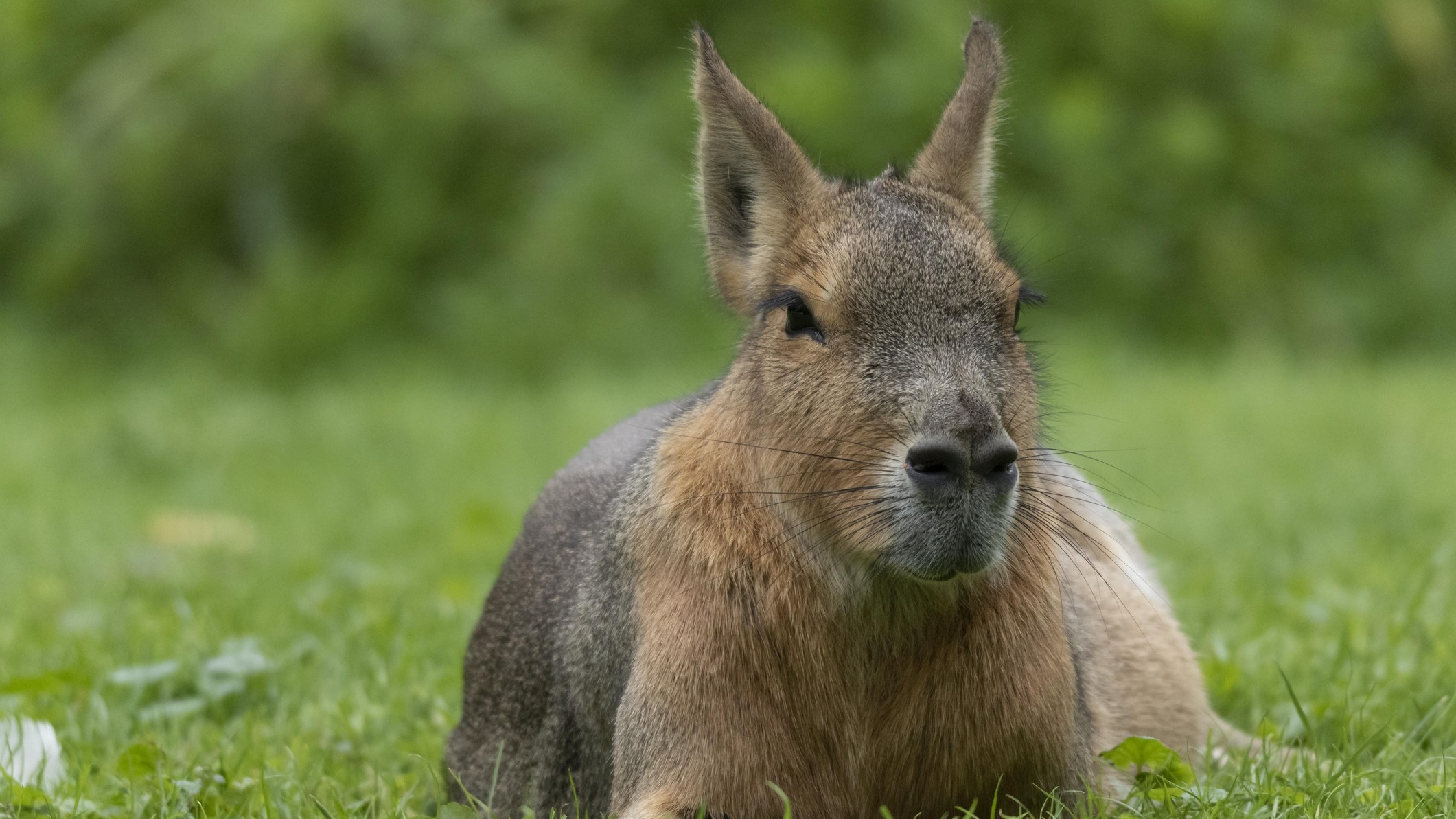Patagonian mara: The monogamous rodents that mate only a few times a year but pee on each other constantly
Male Patagonian maras follow females wherever they go and rub poop on the ground around them to deter rival males.

Get the world’s most fascinating discoveries delivered straight to your inbox.
You are now subscribed
Your newsletter sign-up was successful
Want to add more newsletters?

Delivered Daily
Daily Newsletter
Sign up for the latest discoveries, groundbreaking research and fascinating breakthroughs that impact you and the wider world direct to your inbox.

Once a week
Life's Little Mysteries
Feed your curiosity with an exclusive mystery every week, solved with science and delivered direct to your inbox before it's seen anywhere else.

Once a week
How It Works
Sign up to our free science & technology newsletter for your weekly fix of fascinating articles, quick quizzes, amazing images, and more

Delivered daily
Space.com Newsletter
Breaking space news, the latest updates on rocket launches, skywatching events and more!

Once a month
Watch This Space
Sign up to our monthly entertainment newsletter to keep up with all our coverage of the latest sci-fi and space movies, tv shows, games and books.

Once a week
Night Sky This Week
Discover this week's must-see night sky events, moon phases, and stunning astrophotos. Sign up for our skywatching newsletter and explore the universe with us!
Join the club
Get full access to premium articles, exclusive features and a growing list of member rewards.
Name: Patagonian mara (Dolichotis patagonum)
Where it lives: Arid grasslands and brush lands in central and southern Argentina
What it eats: Grasses, cacti, seeds, fruits, flowers and its own dung
Why it's awesome: Patagonian maras mate for life, and males are fiercely protective of their partners, following them wherever they go to shield them from other males and from predators.
Despite their lifelong bond, mara pairs display virtually no physical contact apart from that seen during sex or when they're huddling together when it's cold.
Males occasionally sniff their partner's genitals, to which the female "usually responds by abruptly presenting her rump toward the male's face and discharging a jet of urine," according to a 1974 study.
Males also pee on their partners, all the while rubbing their anal glands and feces on the ground that the female previously occupied, to deter rival males. A male will "stand up on his hind legs and project a powerful jet of urine forwards onto the rump of the female, and she immediately responds by producing a jet of urine backwards onto the male's face," researchers wrote in the study.
Get the world’s most fascinating discoveries delivered straight to your inbox.
Related: Tufted ground squirrel: The Borneo rodent once believed to disembowel deer and feast on their organs
Patagonian maras — which grow to just under 30 inches (76 centimeters) in length — also have a unique breeding strategy, which involves rearing their young in communal dens shared by up to 22 pairs. Females are only sexually receptive three to four times a year during a 30-minute window known as estrus, which may explain why the species is monogamous.
Is that a giant rabbit? 👀 Nope, it’s the Patagonian mara! Weighing ~35 lbs (15.9 kg), this long-legged rodent can outrun an Olympic sprinter—reaching speeds of ~45 mi (72 km) per hour! It inhabits open grasslands where it spends time basking in the Sun and foraging for food. pic.twitter.com/pkZjSo911eJune 6, 2023
Estrus in Patagonian maras is so short that a male trying to mate with several females would struggle to strike while they were hot. Monogamy, on the other hand, helps ensure successful mating by keeping bonded members of a pair close together.
The bond between a Patagonian mara couple is so strong that they can struggle to find a new mate if one of them dies, according to a 1987 PhD thesis, which documented a male "still alone" six weeks after his mate died, "despite the fact that there were several single females available."

Sascha is a U.K.-based staff writer at Live Science. She holds a bachelor’s degree in biology from the University of Southampton in England and a master’s degree in science communication from Imperial College London. Her work has appeared in The Guardian and the health website Zoe. Besides writing, she enjoys playing tennis, bread-making and browsing second-hand shops for hidden gems.
 Live Science Plus
Live Science Plus










